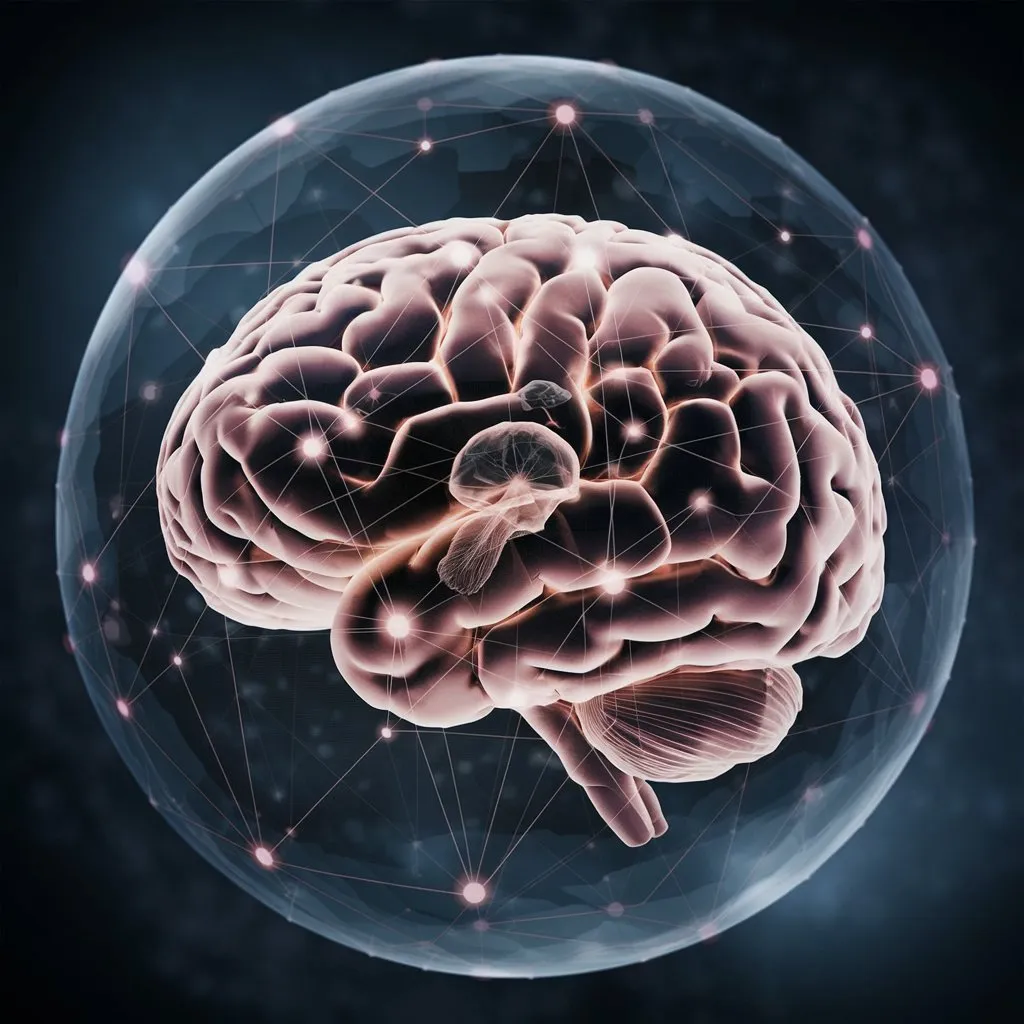Technology developers and futurists have speculated about building the global brain. This is something that was discussed decades ago. It is coupled with the idea of a network society along with the information age.
All of these are leading to the same outcome. No longer are we dealing with theory. Instead, we have the early foundation of what will likely be a more advanced complex system. We are watching it evolve in many different ways, combining humans, computers, and robots. All of this is going to lead to a far advance ecosystem of "intelligence".
This is forming the backbone of a central nervous system for another superorganism. This is no different that any other complex entity emerging. What is different is we are dealing with a non-biological being (at least in the near term).
As always, control is a question. Through fragmentation and decentralization, we are witnessing the creation of distributed intelligence.

Image generated by Ideogram
Web 3.0: The Global Brain
Web 3.0 is the next generation Internet.
Much like Web 2.0, this will surpass the present state. We do not refer to Web 1.0 anymore. In fact, the only time Web 2.0 is mentioned is when discussing it in the context of Web 3.0. To most, it simply is the Internet.
Web 3.0 will be the same.
As it expands, grows, and evolves, we will see the integration of older networks with the newer ones. New technologies such as AI will integrate into everything. digital platforms will progress, moving into a mixed reality realm once that technology is nearing the point of adoption.
All of this is going to feed into the global brain.
Before going any further, let us explain this a bit.
The Global Brain can be defined as the distributed intelligence emerging from all human and technological agents as interacting via the Internet
It is easy to see how this is forming before our eyes. Actually, it was decades in the making, something that few of us noticed. This is changing due to the pace of advancement. Over the next decade, we could see progress in the digital world that outpaces the gains made in the last century.
For those scoring at home, that is a 10x rate of improvement.
As an aside, too many view humans as separate from technology. This is not the case. Hopefully this concept shows how humans are as much a part of the process as anything else.
Why Web 3.0?
If the global brain emerges as it is defined, one of the key areas is distributed intelligence. Here is where Web 3.0 is guaranteed to enter.
Distributed is the antithesis of centralized. Web 2.0 operates in a centralized manner. Even the client-server architecture epitomizes this.
Blockchain is disrupting a great deal. We are going to see the intelligence distributed as data, agents, and compute are spread out. Distributed computing is already making progress, further feeding into this idea.
This is going to play havoc with the existing system. Those who benefit, especially financially, are going to suffer a decline. Some, naturally, will adapt but, like many entities in the past, we will see a great deal of carnage.
Web 3.0 is more than just social media and tokenization. It is a connected world where automation is commonplace. We are likely to see more activity generated by computers than humans. Actually, it will not even be close. My guess is the ratio will be 90/10, in favor of the machines.
Some might object to this but that is nothing more than fear-based conditioning. What do you think the percentage of dirt is moved by machines as compared to humans with shovels? There was a time where the latter was responsible for the activity.
Another example is with computation. Humans do very little compute as compared to machines. Any sites with numerical updates were done by computers, not humans. Once again, nobody seems to object.
In other words, there will come a time when AI agents operating autonomously will be normal. People will think nothing of it. Consider this to be extended auto-pay. What happens when you sign up to have you bank pay your electric bill? Each month, the system takes care of it.
Take that concept and place it on steroids.
network Society
Humans have always been tribal. The future is no different.
We are moving towards a more advanced society. Here we also see who the forecasts from so long ago are emerging. This dates back to 2004:
A network society is a society whose social structure is made of networks powered by microelectronics-based information and communication technologies. By social structure I understand the organizational arrangements of humans in relationships of production, consumption, reproduction, experience, and power expressed in meaningful communication coded by culture.
Naturally, we can replace the work "microelectronics" with digital. Once that is done, this applies to what we are seeing today.
We are moving towards a world of trillions of sensors. This means we are creating data generation machines regularly. The emergence of robots is only going to accelerate this process.
The number of nodes connected to the global brain is only growing. We are putting chips into everything. There was a time when televisions, thermostats, and door bells were not connected. That is no longer true in many instances.
We now have the ability to connect with most anyone in the world. Consider how absurd that idea was just a century ago. The Internet is closing in on 5.5 billion humans connected. Of course, the number of connected non-human devices will 100x this.
Each piece of data that is created if feeding into this. We then have developers who code algorithms which process the data and generate outcomes.
Of course, this results in more data being produced, which further feeds the global brain.
This is being built at a rapid pace.